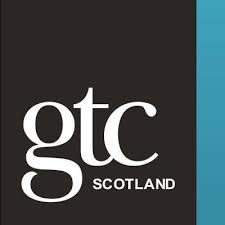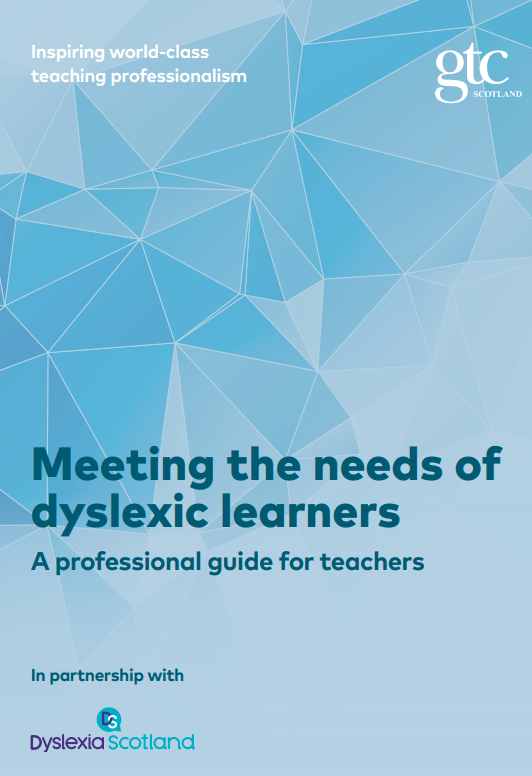General Teaching Council for Scotland - GTCS

The General Teaching Council for Scotland -
Enhancing Professionalism in Education scince 1965
This toolkit will help you as a teacher to enhance and evidence your professional practice in relation to dyslexia and inclusion.
The Scottish teaching profession is committed to career-long professional learning (CLPL).
Having attained the Standard for Full Registration, teachers will continue to develop their expertise and experience across all areas of their professional practice through appropriate and sustained career-long professional learning.

Cathy Magee, Chief Executive, Dyslexia Scotland said,
“Dyslexia Scotland welcomes the publication of these new practical professional guides on additional support needs, including on dyslexia. They are useful ‘go to’ resources which we hope all teachers will regularly refer to in order to understand and meet the needs of all learners in their classroom. The Dyslexia Guide includes the Scottish definition, addressing dyslexia in the Scottish context, the broad range of characteristics of dyslexia and what can help, as well as links to a wide selection of useful additional resources for further learning.”
Ken Muir, Chief Executive and Registrar at GTC Scotland said,
“In the last 10 years we have seen a near six-fold increase of children and young people with a recorded additional support need in our schools.
During this time, GTC Scotland has embarked on a number of projects to help registrants enhance their skills and capacity to support children and young people with additional support needs, the latest of which is the publication of professional guides on autism, neurodiversity and dyslexia.
The professional guides are deliberately short and easy to read, with very practical guidance that encourages reflection with advice that can be readily adopted into teaching practice. They also complement the increased focus given to additional support needs in the revised Professional Standards for teachers, which become mandatory in August 2021.”
The Standard for Career-Long Professional Learning describes the advanced professional knowledge and pedagogical expertise that registered teachers will develop and maintain as they continue to progress in teaching and the education profession. The standard provides an opportunity for teachers to progress, enrich, develop and enhance their practice, expertise, knowledge, skills and professional values.
Click this link to access a film.
The standards are underpinned by the themes of values, sustainability and leadership. Professional values are at the core of the Standard for Career-Long Professional Learning. They are integral to, and demonstrated through, all of our professional relationships and practices.
The online learning modules for dyslexia and inclusive practice and CLPL Routemap have been developed around the following areas which the GTC identifies as CLPL:
- Pedagogy, learning and subject knowledge
- Curriculum and assessment
- Enquiry and research
- Educational contexts and current debates in policy, education and practice
- Sustaining and developing professional learning
- Learning for sustainability
Information about the nature and purposes of CLPL can be found in the 2012 GTCS publication via this link.
Professional values are at the core of the Professional Standards.
The Professional Values and Personal Commitment core to being a teacher are:
- Social Justice
- Integrity
- Trust and Respect
- Professional Commitment
All of the above are intrinsically linked to supporting all learners within an inclusive curriculum
